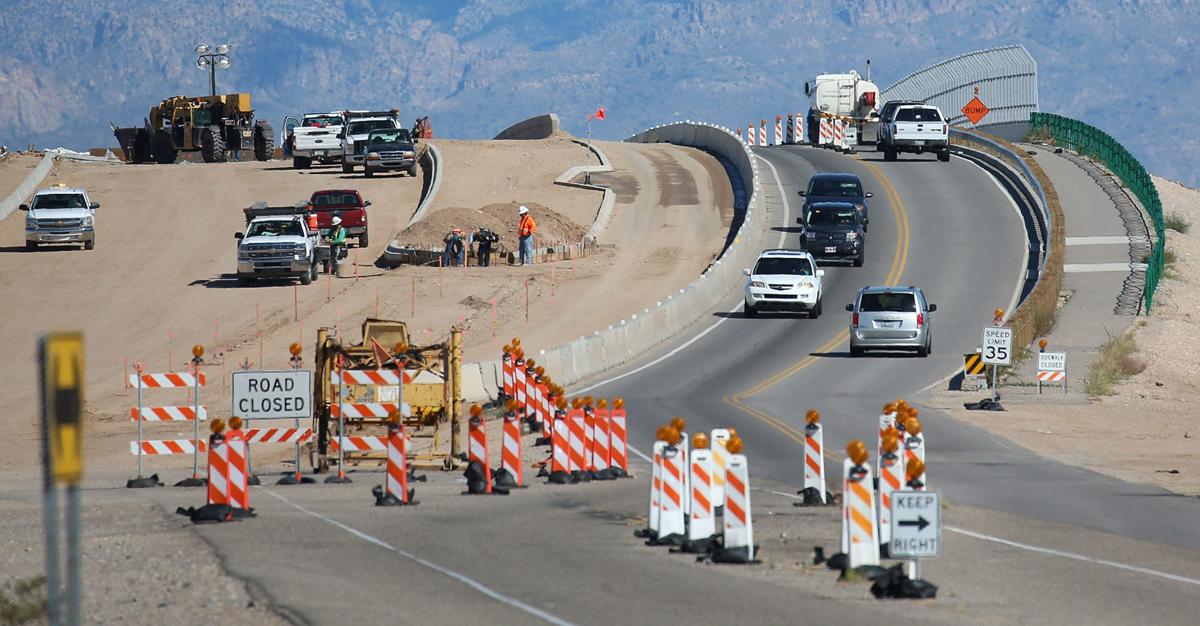A $1.42 billion budget for fiscal year 2021 that cuts the overall property tax rate by 4.5%, fixes 127 miles of local roads and provides over $165 million in capital improvements, was approved Tuesday by the Pima County Board of Supervisors.
The proposed budget, which will go into effect July 1, has been significantly modified to account for the economic impacts of the COVID-19 pandemic.
To help offset a loss of about $60 million in expected revenue, the county will suspend $15 million in intended facilities maintenance, reduce department expenditures by $16.4 million, reduce overtime, travel and training spending and cut 350 full-time positions from its payroll.
To save the county about $13.7 million, the board also made the decision to suspend its pay-as-you-go (PAYGO) plan until the next fiscal year.
The plan is intended to repair the county’s failing road system over the next 10 years using a percentage of the secondary property tax and a portion of the taxes no longer needed to pay off bonds.
The county will instead use short-term Certificates of Participation at near-zero interest rates to continue with PAYGO infrastructure funding and road repairs through the pandemic.
The proposed $1.42 billion budget is about $112 million higher than the current budget, but it includes more than $65 million in federal CARES Act stimulus funds to help the county pay for the costs of the pandemic, according to County Administrator Chuck Huckelberry.
Taxes
As part of the budget adoption process, the board voted on several separate property tax levies. In a 3-2 vote, the supervisors approved a primary property tax rate of $3.9220, which is 7 cents less than the current rate. The primary property tax is the main source of funding for the county’s General Fund, which is unrestricted and funds the majority of county operations.
In a 5-0 vote, the board set the bond repayment tax, or debt service tax, at 52 cents, a reduction of 17 cents from the current rate. This secondary tax is restricted to repaying voter-approved bonds that were used over the past 30 years to construct public buildings and recreational amenities, provide for historic preservation and for neighborhood investment and conservation.
“We need to be clear and we need to be honest with the public,” said Supervisor Ally Miller.
“That 17 cent rate reduction is a result of the voters of this community saying, ‘no, we’re not going to approve anymore bonds. We’re not going to approve anymore debt.’ That’s why that rate goes down 17 cents.”
Roads and Capital Improvement
In addition to setting tax rates, the supervisors also approved $55 million in road repairs, which will fix about 127 miles of local roads and about 45 miles of collector and arterials.
With $165 million in capital project funding, the county hopes to bolster the local economy by funding jobs in the construction industry, which will help build new libraries in Vail and Sahuarita, extend Valencia Road from Houghton Road to Old Spanish Trail and continue to renovate Pima County’s Historic Courthouse.
Funding tourism
During their budget meeting, the board also voted to allocate more than $380,000 to tourism related agencies in response to the economic impact of COVID-19.
Nine nonprofit community agencies will receive financial support from the county to promote events, celebrations and programs that provide economic development and improve tourism in Pima County.
The recipients of the grant include the Ajo District Chamber of Commerce, the Arts Foundation for Tucson & Southern Arizona, Children’s Museum of Tucson and Tucson Botanical Gardens among others.
“Due to the COVID-19 pandemic, attractions are open with limited capacity and events altered to accommodate physical distancing,” Attractions and Tourism Director Diane Frisch said.
“These nonprofits need our assistance now more than ever as we navigate these unprecedented times.”





